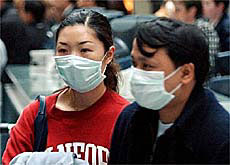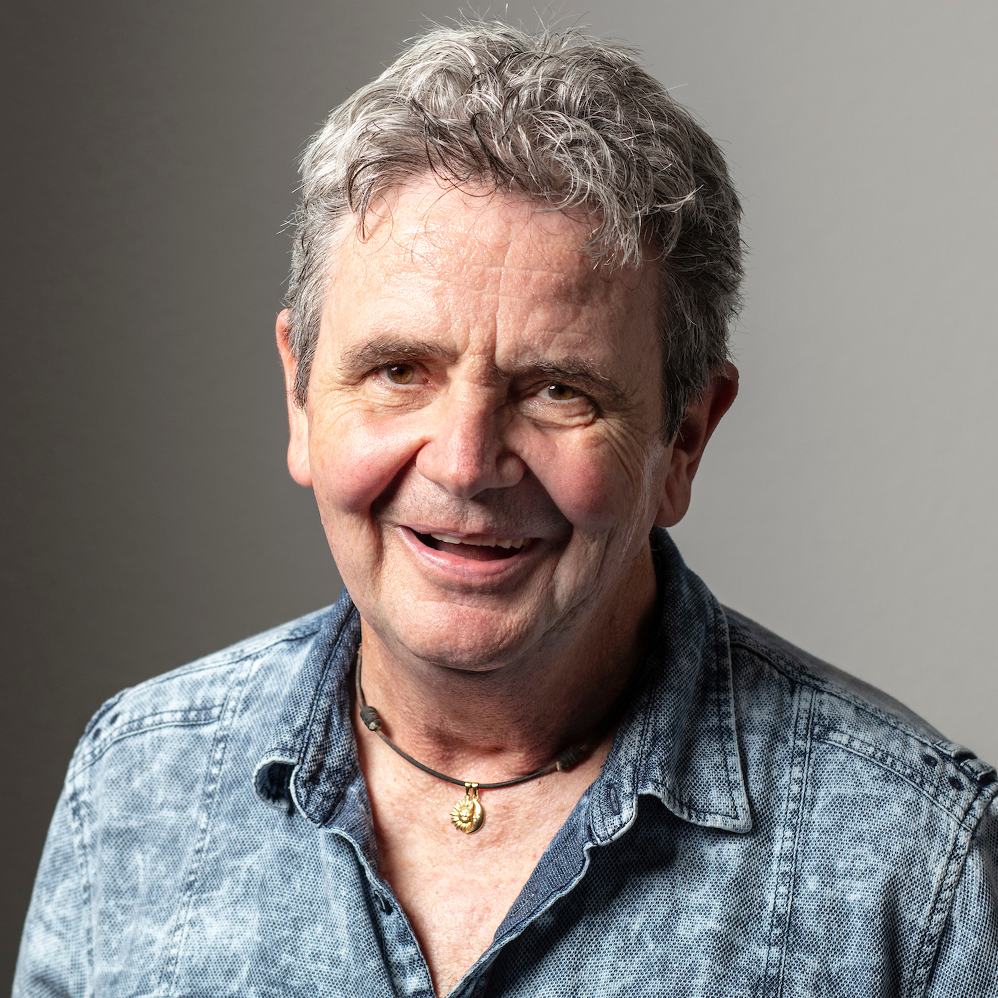Sars epidemic no cause for panic, say doctors

Swiss doctors are playing down fears that Severe Acute Respiratory Syndrome, or Sars, constitutes a major threat to the population.
The medical corps says the atypical pneumonia that originated in China and has killed over 100 people around the world is no worse than other viral diseases.
“Sars is far from being a major killer,” said Giorgio Zanetti, an infectious diseases specialist at Lausanne University Hospital. “Only ten per cent of all cases are serious and just three to five patients out of 100 will die from it.”
Switzerland has so far remained unscathed by Sars. Only one probable case has been registered with the authorities, and there are currently six other possible ones.
False alarm
Seven other cases have been dismissed as false alarms. This did not stop the federal health authorities, fearing a spread of the disease, from banning some Asian countries from exhibiting at the important Basel watch fair.
Zanetti says it is difficult to say why some people die. “We have to assume their immune system was too weak or they waited too long for treatment,” he told swissinfo.
Elderly people, who are already weakened or in bad health seem to be most vulnerable to Sars, as they are to influenza. But Zanetti warns this is not a proven fact.
The specialist says the biggest difficulty for doctors at the moment is the lack of a specific test for the disease. “We can only eliminate the other possibilities,” he said.
“We don’t know what the virus looks like exactly, even if we are close to identifying it.”
Treatment
Treatment is restricted for the time being to dealing with the symptoms associated with mild cases of Sars, such as fever and joint pain. In more severe cases, doctors can give patients help with their breathing.
Although there is no great risk to the population, Zanetti says the Swiss must not let their guard down. “You cannot tell how the epidemic will evolve,” he told swissinfo.
He added that while information about the disease has been disseminated quickly and health authorities around the world have reacted, Sars has still not been contained.
“It is very difficult to stop the disease from spreading, as the Canadians have found out,” he said. “But it could be that preventive measures may suffice to eradicate it for the time being.”
Search for a vaccine
In the meantime, the hunt for a vaccine to ward off the virus is already being considered in Switzerland and abroad.
However, Berna Biotech, a Swiss vaccine specialist, is waiting for the virus to be properly identified before launching a research and development programme.
“We are keeping an eye on how the situation develops before we make any decision on whether to go forward,” said spokesman Patrik Richard. “But we will be looking into the matter seriously since we are well positioned to develop a vaccine.”
Richard warns though that finding a vaccine could be a long process. “It could take up to ten years just to develop it,” he told swissinfo.
Berna is a minnow among the world’s healthcare companies, with a comparatively small research budget of just SFr50 million ($36 million). But the firm that develops a vaccine is likely to see its investment pay off.
“Governments would be willing to shell out a lot of money to buy a vaccine,” said Roland Maier, a manager at investment firm BB Biotech. “The effects of an epidemic on some of the world’s biggest economies could be devastating if it went unchecked.”
Protection
Maier cites as an example the recent fears of terrorist attacks using smallpox that prompted governments to stockpile vaccine.
“They spent several hundreds of millions of dollars to protect themselves against an uncertain threat,” he told swissinfo.
He adds though that until the virus responsible for Sars is properly identified, the prospect of a vaccine remains uncertain, even if developments so far are promising.
“The virus seems to belong to the coronavirus family,” he said. “While humans haven’t been affected by this type of virus before, there are animal vaccines that have been developed for it.”
Maier reckons that if a new vaccine can be based on pre-existing one, development shouldn’t take too long.
Diagnostics
The Sars vaccine market isn’t the only one healthcare companies are considering. Swiss multinational Roche is considering the diagnostics and treatment issues related to the epidemic.
“We are confident we could develop a test rapidly once the virus is identified,” said company spokesman Horst Kramer. “If all went well, it would only take around two months.”
Finding a treatment for Sars will take longer though. Kramer says identifying the virus is just the first step.
“It can take a long time before you can find a virus’ weakness,” he told swissinfo. “Until then, you can’t start considering a treatment that interferes with the virus’ life cycle and prevents it from replicating.”
From that point on, Kramer says it would take five to eight years to develop the treatment, at a cost of between SFr750 million and SFr1 billion.
swissinfo, Scott Capper and Marc-André Miserez
Sars is a pneumonia-like virus that has killed around 100 people and infected more than 2,500 around the world.
In Switzerland, one probable case has been registered and there are six suspected cases. Seven other cases proved to be false alarms.
The World Health Organization says the disease originated in China’s southeast province of Guangdong, before spreading to Hong Kong, and later to Vietnam, Singapore and Canada.
Scientists believe the disease most likely originated in animals.
The main symptoms are high fever, dry cough, and shortness of breath or breathing difficulties.

In compliance with the JTI standards
More: SWI swissinfo.ch certified by the Journalism Trust Initiative



You can find an overview of ongoing debates with our journalists here. Please join us!
If you want to start a conversation about a topic raised in this article or want to report factual errors, email us at english@swissinfo.ch.